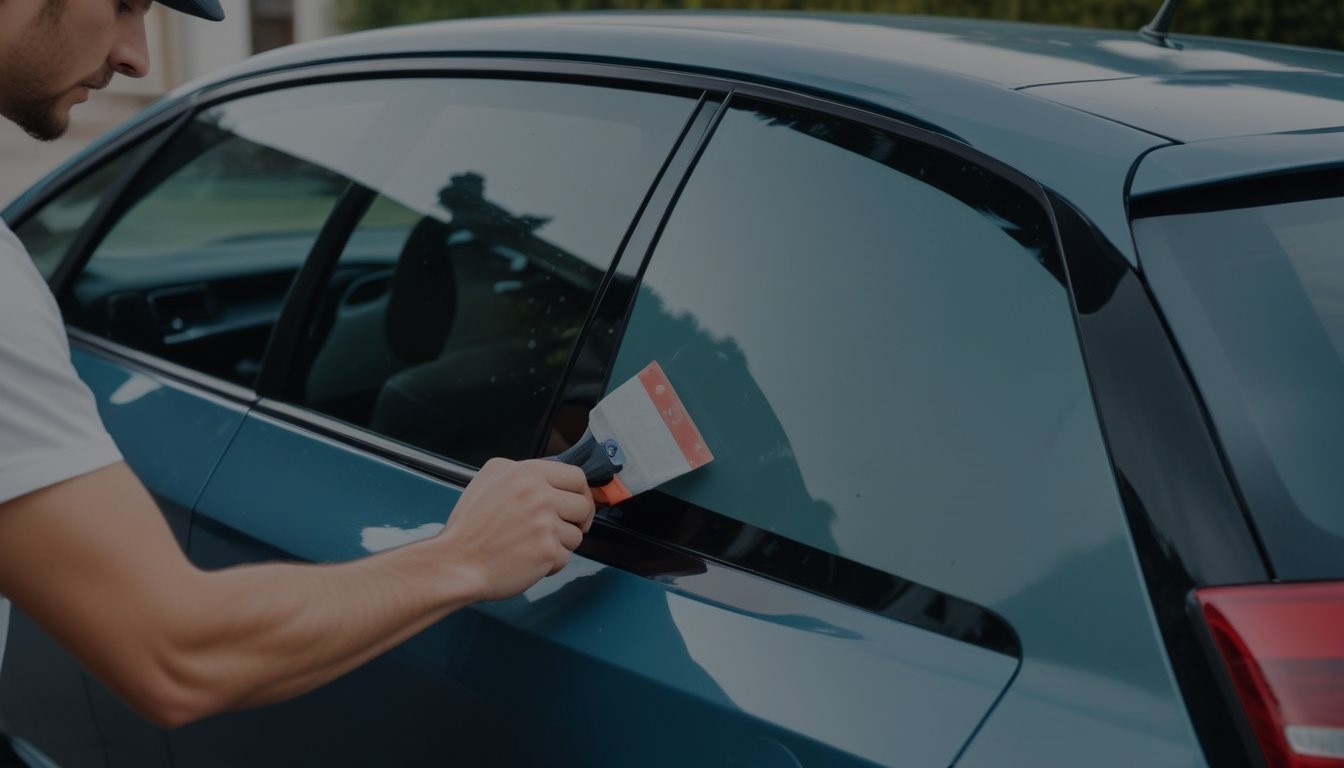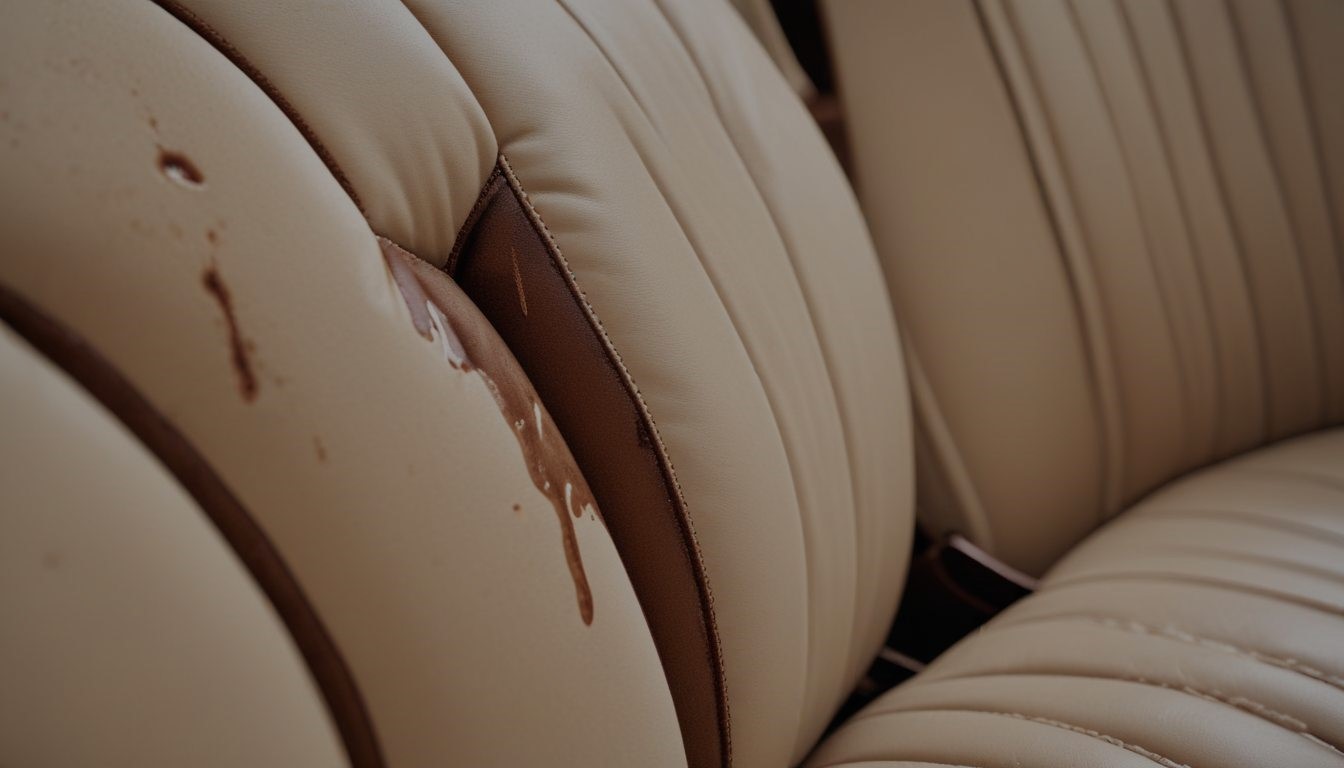Related Posts

Why You Should Wash Your Car Before Window Tinting

Does car detailing remove stains? A deep dive into stains.

What are ceramic coatings? Why do I need one?
When it comes to keeping your car looking great, choosing the right car wash method is crucial. Soft touch car washes are popular for being both effective and safe. But are they really safe? Let’s explore how they work, their benefits, and what experts say.
Soft touch car washes use special materials and technology to clean cars gently and thoroughly. Here’s how they work:
Materials: These systems use soft cloth, lightweight foam, and felt cloth. These materials are chosen because they are gentle and minimize the risk of scratches or damage to your car’s surface.
Lubrication: The foam and soft cloth are soaked with water and mild soap. This creates a smooth, lubricated surface that gently touches your car. The detergents used are mild, similar to hair shampoo, ensuring they are gentle on your car’s finish.
Cleaning Action: The soft materials, combined with the soap and water solution, break the bond between dirt and your car’s surface. Computer-controlled settings ensure the cleaning is effective without causing damage.
Dirt Removal: Centrifugal forces and the constant flow of soap and water remove dirt, pollen, and debris. This method ensures that the vehicle is cleaned from all angles, effectively tackling stubborn contaminants like bird droppings.
Rinsing and Drying: After cleaning, low-pressure water rinses off the remaining soap. This step ensures no residue is left on the car, preventing streaks or spots. The car then gets a hydrophobic “cold wax” for added shine and protection and is dried using forced air.
Experts and reputable car wash operators agree that soft touch systems provide the best and safest cleaning. Here’s why:
Gentle Cleaning: Soft touch systems clean like washing fine china—using mild soap and water with gentle agitation. This method is effective in removing dirt without damaging the surface.
Higher Maintenance, Better Results: Although maintenance and operating costs are higher for soft touch systems, they provide superior cleaning. The gentle process ensures that waxes and sealants remain intact, keeping the car cleaner for longer periods, far better than most automatic car washes which use dangerously high pressure.
Safety and Effectiveness: The idea that soft touch systems can scratch or damage the car’s finish is outdated. This belief comes from older systems from the 60s, 70s, and 80s that used rough brushes. Modern soft touch systems have replaced these with safer, more effective technology.
Despite old misconceptions, modern soft touch car washes offer many benefits:
Enhanced Cleaning: Soft touch systems are known for their thorough cleaning. The gentle materials used ensure a spotless finish.
Preservation of Car Finish: The mild detergents and lubricated materials protect the car’s waxes and sealants, preserving the finish and extending cleanliness.
Increased Traffic: Many car wash facilities see more traffic through soft touch systems, showing customer preference for the superior cleaning they offer.
Scratching and Damage: A common misconception is that soft touch car washes can scratch or damage a car’s finish. This belief originates from old car washes that used abrasive materials. Modern soft touch systems use soft foam and cloth that are gentle on car surfaces.
Auto Manufacturer Recommendations: Some auto manufacturers recommend only touchless car washes. While this advice is based on caution, it is often outdated. Modern soft touch systems are safe for all types of vehicles, including those with delicate finishes.
Real-World Testimonials: Many car owners who have switched to soft touch car washes report high satisfaction. For instance, Jessica, a car enthusiast from California, mentioned, "I was initially skeptical, but after my first soft touch car wash, I was convinced. My car looked brand new, and I didn’t see any scratches or damage." Similarly, John, a taxi driver in New York, shared, "I rely on soft touch car washes to keep my vehicle in top shape. It’s efficient, safe, and my customers always compliment the cleanliness."
The technology behind soft touch car washes continues to evolve. Newer models come equipped with better sensors and materials that further reduce any risk of scratches or damage. These advancements ensure that cars of all shapes and sizes receive a customized, gentle clean.
Soft touch car washes are not only safe for your car but also for the environment. The closed-cell foam and felt cloths are designed to use water efficiently, reducing waste. Moreover, the mild detergents used are often biodegradable, minimizing the environmental impact.
When considering car wash options, it's important to compare the pros and cons of soft touch and touchless car washing:
Soft Touch Car Wash:
Pros: Provides thorough cleaning, gentle on the car’s surface, preserves wax and sealants, effective at removing tough contaminants like bird droppings.
Cons: Higher maintenance and operating costs, requires more water and detergents.
Touchless Car Wash:
Pros: No physical contact with the car’s surface, reducing the risk of scratches, usually faster, and uses less water and detergents.
Cons: May not clean as thoroughly, especially on heavily soiled vehicles, less effective at removing stubborn contaminants.
Soft touch car washes are safe and provide excellent cleaning results. The advanced technology and materials used in these systems ensure that your car gets a gentle yet thorough wash, preserving its finish and extending the time between washes. As the industry continues to improve, soft touch car washes remain a top choice for car owners who want the best care for their vehicle.
Understanding how soft touch car washes work and their benefits can help you choose this method with confidence. The combination of gentle materials, advanced technology, and effective cleaning makes soft touch car washes the ideal choice for maintaining your car’s appearance and value. So next time you're considering a car wash, you can trust that a soft touch system is a safe and effective choice. If you're looking for a professional to detail your car, visit Frisco Mobile Detailing.

Why You Should Wash Your Car Before Window Tinting

Does car detailing remove stains? A deep dive into stains.

What are ceramic coatings? Why do I need one?